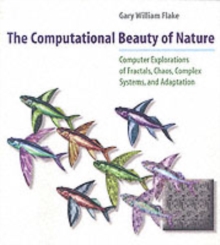
The Primacy of the Subjective : Foundations for a Unified Theory of Mind and Language Hardback
by Nicholas Georgalis
Part of the A Bradford Book series
Hardback
Description
A proposal that the concept of minimal content-a narrow, first-person, non-phenomenal concept-plays a necessary, pivotal, foundational, and unifying role in the philosophy of mind and the philosophy of language. In this highly original monograph, Nicholas Georgalis proposes that the concept of minimal content is fundamental both to the philosophy of mind and to the philosophy of language.
He argues that to understand mind and language requires minimal content-a narrow, first-person, non-phenomenal concept that represents the subject of an agent's intentional state as the agent conceives it. Orthodox third-person objective methodology must be supplemented with first-person subjective methodology.
Georgalis demonstrates limitations of a strictly third-person methodology in the study of mind and language and argues that these deficiencies can be corrected only by the incorporation of a first-person methodology.
Nevertheless, this expanded methodology makes possible an objective understanding of the subjective. Georgalis argues against the conflation of consciousness and subjectivity with phenomenal experience.
Consequently, and contrary to common belief, he argues that consciousness without phenomenality is as strongly implicated in intentionality as it is in phenomenal states.
He proposes a broader understanding of the "hard problem" of consciousness, arguing that there is an "explanatory gap problem" for both phenomenal and intentional states.
His theory provides a framework that renders the vexing relations between mental and brain states comprehensible.
Georgalis also argues for novel explanations of the phenomenal and of representation-explanations that follow from the core concept of minimal content.
Treating the topics of meaning and reference, he introduces a first-person concept of intended reference derivative from minimal content that resolves various problems in the philosophy of language. Eschewing ontology, Georgalis proposes his theory as a means to make sense of, analyze, and relate issues in the philosophies of mind and language.
The concept of minimal content, he argues, plays a necessary, pivotal, unifying, and foundational role in advancing our understanding of these issues.
Information
-
Item not Available
- Format:Hardback
- Pages:336 pages
- Publisher:MIT Press Ltd
- Publication Date:23/09/2005
- Category:
- ISBN:9780262072656
Other Formats
- PDF from £39.90
Information
-
Item not Available
- Format:Hardback
- Pages:336 pages
- Publisher:MIT Press Ltd
- Publication Date:23/09/2005
- Category:
- ISBN:9780262072656










